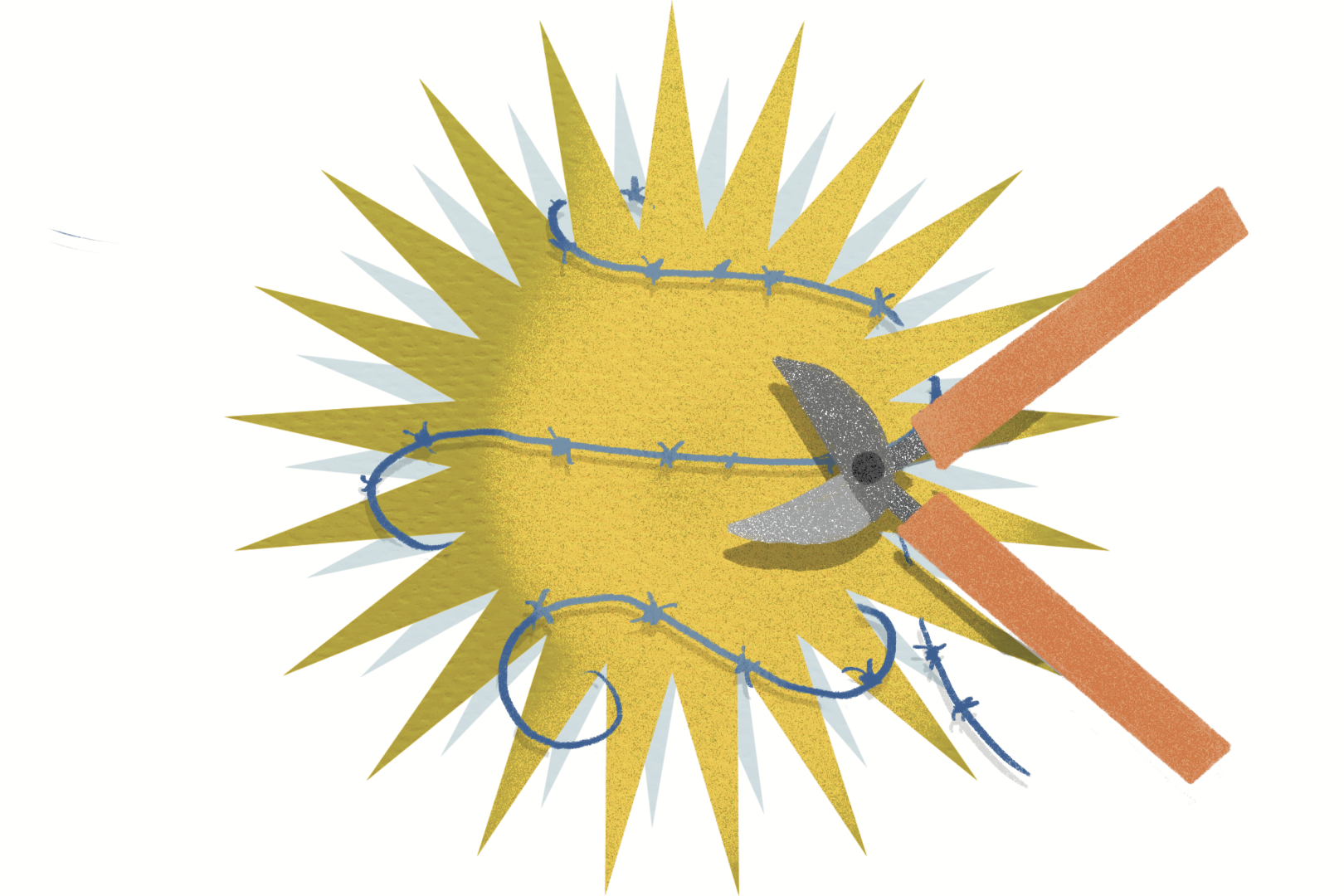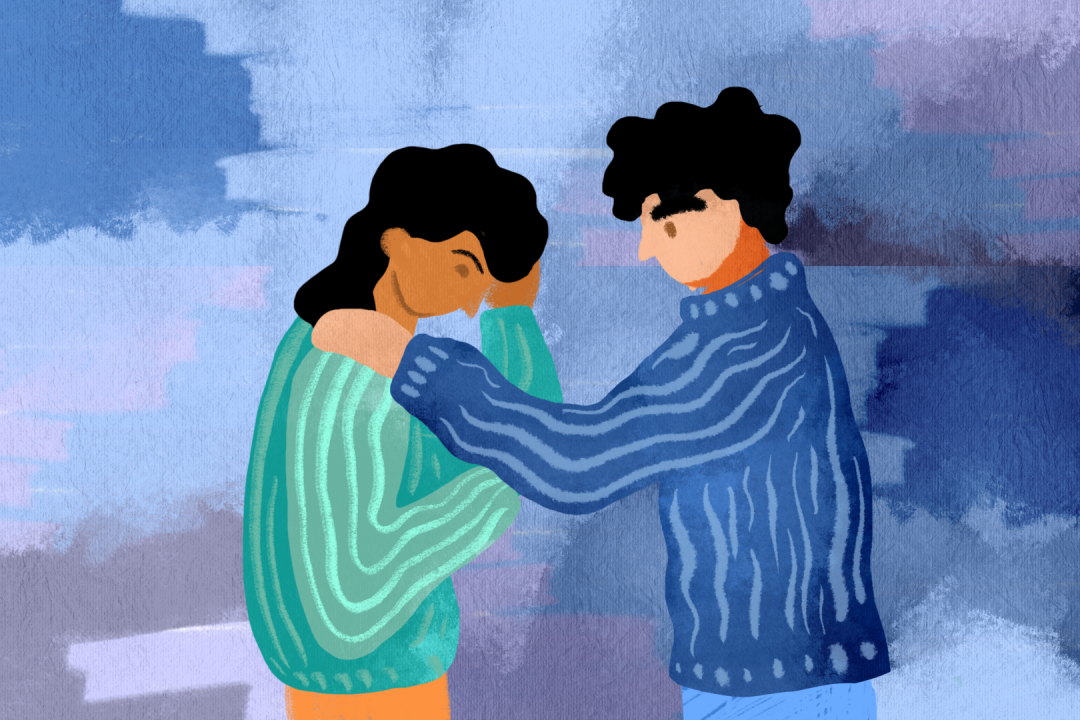
Learning and Leveraging ‘Rights’ in the Kurdish Context
By: Baniz
While there are numerous resources and studies on human rights, there is a lack of research on rights discourse among individuals in the Kurdistan Region of Iraq (KRI). This article examines how individuals learn about their rights, to what extent they see their successful application, and how human rights discourse influences individuals’ conceptions of their rights. ‘Right’ itself is a broad concept, encompassing a variety of areas including cultural, social, economic, civil, and political. The notion of human rights, which evolved during the Enlightenment, resurfaced after World War II and has since been used frequently in international and local contexts.
Evidently, as a result of globalization, the world is becoming more connected and this is impacting rights discourse, influencing where individuals learn about rights and enhancing the spread of rights awareness. Critics have argued that making countries follow human rights rules is a way for ‘the West’ to force its own set of cultural values on other countries and that advocating for human rights is a form of cultural imperialism. Though accusations of cultural imperialism may be extreme, it is clear that some non-Western states are unhappy with the way human rights discourse reflects the underlying norms. Since the first human rights treaties were signed, people have asked if human rights will ever be truly universal.
Human Rights Discourse
Human rights discourse is the communication and discussion of human rights through which individuals can learn of them. Human rights discourse has transformed international and humanitarian law and assists in the reshaping of relationships between international organizations, governments, and citizens. International instruments are generally used to provide a universal definition of rights, however, there is debate over whether ‘the West’ influences these universal rights or whether they are obsolete. Critics of liberal ideology may argue that western nations shape these universal rights and thus primarily serve the interests of the global north. Others may support universal rights because global governance requires nations to adhere to universal laws to maintain world peace and security. According to some experts, there is widespread consensus that global standards are essential for domestic political institutions and that actual or imminent violations of these standards are sufficient grounds for external intervention.
Leyla, a 20-year-old living in the city of Erbil, discusses how she is denied the privilege of practicing women’s rights in an Islamic society, even though universal rights support gender equality. She explained that women’s rights “is the one that I have been deprived of because I live in a Middle Eastern Islamic society that looks down on women.” Many female participants perceived their access to certain rights as restricted due to their gender and attributed this to cultural norms that can prevent one from practicing one’s universal rights. Traditional norms in Kurdistan, for example, support the idea that brothers and/or fathers have control over women in their family and have the “right” to interfere with their decisions, preventing women from engaging in “taboo acts'' whereas universal rights offer inherent and inalienable rights to everyone, regardless of culture and tradition.
One right that Nabaz, a 28-year-old living in Erbil, explained should be abolished due to its link to honor killings in Kurdistan, whereby a father or brother can murder his daughter or sister with impunity. Reflecting on a local incident of honor killing in his neighborhood “where they buried her alive,” Nabaz described this law as “one of the most disgusting laws that exist where a father can kill his daughter and not go to jail. Anything that is deemed shameful for the family, for example, if she’s seen with another friend outside.” Honor killings have been prohibited in Kurdistan since 2008, and there are arguments that such acts are contrary to Islamic practice; additionally, even if laws exist to protect women, they are not enforced to a large extent. According to CEDAW, efforts to eliminate discrimination against women may necessitate state parties taking measures to modify existing customs or practices that discriminate against women and thus violate their human rights; it prioritizes universal human rights (i.e., non-discrimination) over cultural considerations.
Accessing Rights in the Kurdish Context
Leyla was raised in a household that taught her that women belong in “the kitchen” resulting in her hating being a woman. She later began to learn more about her rights and now believes that women should be independent and have equal rights to men. Leyla described how “men think that they are alpha and they think that they can somewhat disrespect women’s rights and not give women their rights.” Through being a makeup lover, she learned about animal rights, namely that the makeup industry should not use animals for testing. Regarding learning about the rights of minority and marginalized groups, it was George Floyd’s death at the hands of a white police officer that shocked her when he was “killed by the police just because he was black.”
Gulistan, a 29-year-old Kurdish-American living in Erbil, explains that she came to know her rights and how to access them through engaging with civil law, but the fact that culture is stronger than the law, she feels she has been deprived of these rights due to her gender. She explained that “as a woman, I’m not allowed to do things that can be dangerous or harmful to my reputation, but for men it’s okay, so I’m not allowed to practice the rights they practice not because of law but because of culture.” Medya, a 30-year-old American-Armenian living in Ankawa, explains that she was able to practice her rights more in America than in Kurdistan. She believes gender plays a role in what she is allowed to do, explaining that “as a woman living here [KRI], I feel that my rights are very limited” explaining that “I think your gender determines what you can or cannot do here.” All female participants agreed that they face issues and are not treated the same as men just because of their gender. All feel that their access to rights is restricted due to their gender, with gender determining what a woman can or cannot do in Kurdistan.
This power imbalance permeates society in other ways. Interviewees also revealed how in the KRI, those in powerful positions can strip you from your rights. Nabaz mentioned how he feels people have access to some rights but at the same time have other rights taken away, mentioning that freedom of expression is more available outside of the KRI. Nabaz expressed that “you’re not as free as western countries to express your opinions, especially about the government.” Zardasht similarly related to the limits of rights stating, “if you work in a big company where the owner of the company has power, even if they don’t pay you your salary, [and you] file a complaint or go to court, it’s useless, and they won’t do anything about it.” Zardasht, a 26-year-old living in Erbil, expressed his frustration that a person in a position of authority can disregard the law and still get away with it. In the KRI, corruption limits the rights of individuals by giving those in power the upper hand to abuse the rights of others. Medya explains that “it is based on your caliber, specifically what position you have in the government or what salary you make.” Corruption among political parties has been a major component of Kurdish governance in the Kurdistan Region since its establishment in 1991. Prime Minister Masrour Barzani affirmed his cabinet’s determination to continue its anti-corruption and anti-misuse-of-public-resources reforms. According to the parliament’s website, the Kurdistan Parliament passed the reform bill aiming to eliminate “ghost employees” and “bring fairness” to the public pension system around mid-January 2021.
A Brighter Future?
Despite critiquing current access to their rights, all participants mentioned they have witnessed positive progress of rights in their generation. When asked about her thoughts on the advancement of rights in the KRI, Gulistan explains how she thinks that the LGBTQ community can now exercise their rights more freely than before. She sees this as a positive example of rights advancement in the KRI and of an issue becoming more acceptable in society. “I do expect these to get better for sure,” she explains, “I mean, look how far we have come in changing culture and culture is something that does not change overnight. “It takes years and years to change but look at the LGBTQ community, they are exercising their rights more than before.”
Nabaz also explains how younger generations tend to fight for their rights more in KRI and has hope for the younger generation, who he believes “will make this country better for all of us and all the future generations.” Similarly, Zardasht also believes that rights will continue to advance due to advocacy within future generations, who “pay more attention to rights because generation by generation they begin to understand their rights more and will demand to be given to them.”
Depending on one’s point of view, it can be said that traditional norms have been challenged by universalism positively and negatively. As a result of globalization, technological advancements have connected people virtually from all over the world. Women continue to experience limitations in exercising their rights, ascribing these difficulties to gendered differences and the intersection with cultural norms ultimately resulting in a gendered imbalance in accessing rights. While individuals learn about their rights through universalism, cultural, societal, and religious norms often prevent them from fully exercising them. However, the future is bright and demands are being made by an informed youth aware of the obstacles they need to overcome.
1Three males and three females between the ages of 20 and 30 were spoken to about rights discourse in the Kurdistan Region in order to understand where individuals learn about their rights. The researcher used a qualitative approach to obtain information using open-ended questions. Before the interviews began, the researcher gave a consent sheet to the interviewee to read and sign and followed ethical guidelines, informing participants that they were not obliged to answer every question. The researcher informed the interviewee that they were not obligated to answer everything, and could move on to the next question if they wanted. Aliases were used to safeguard the confidentiality of the participants by concealing their identities.


